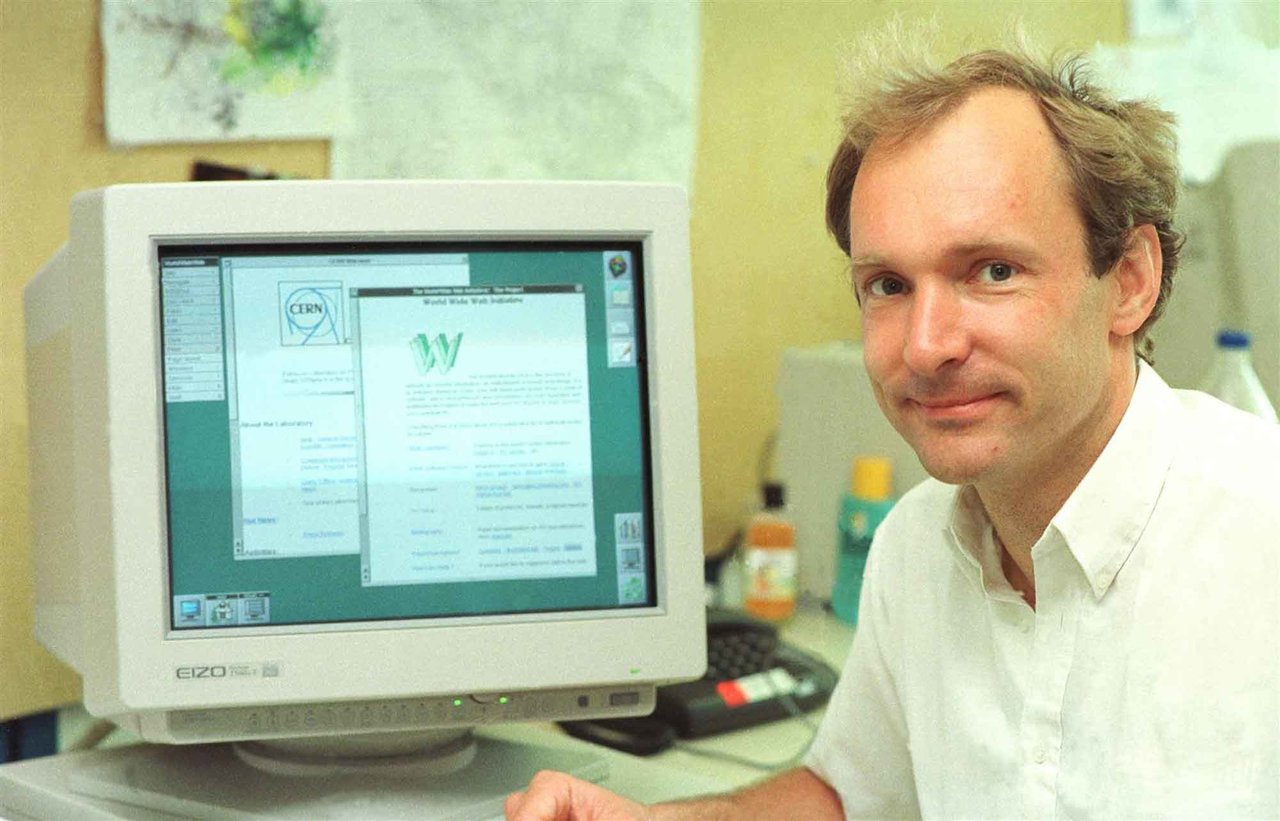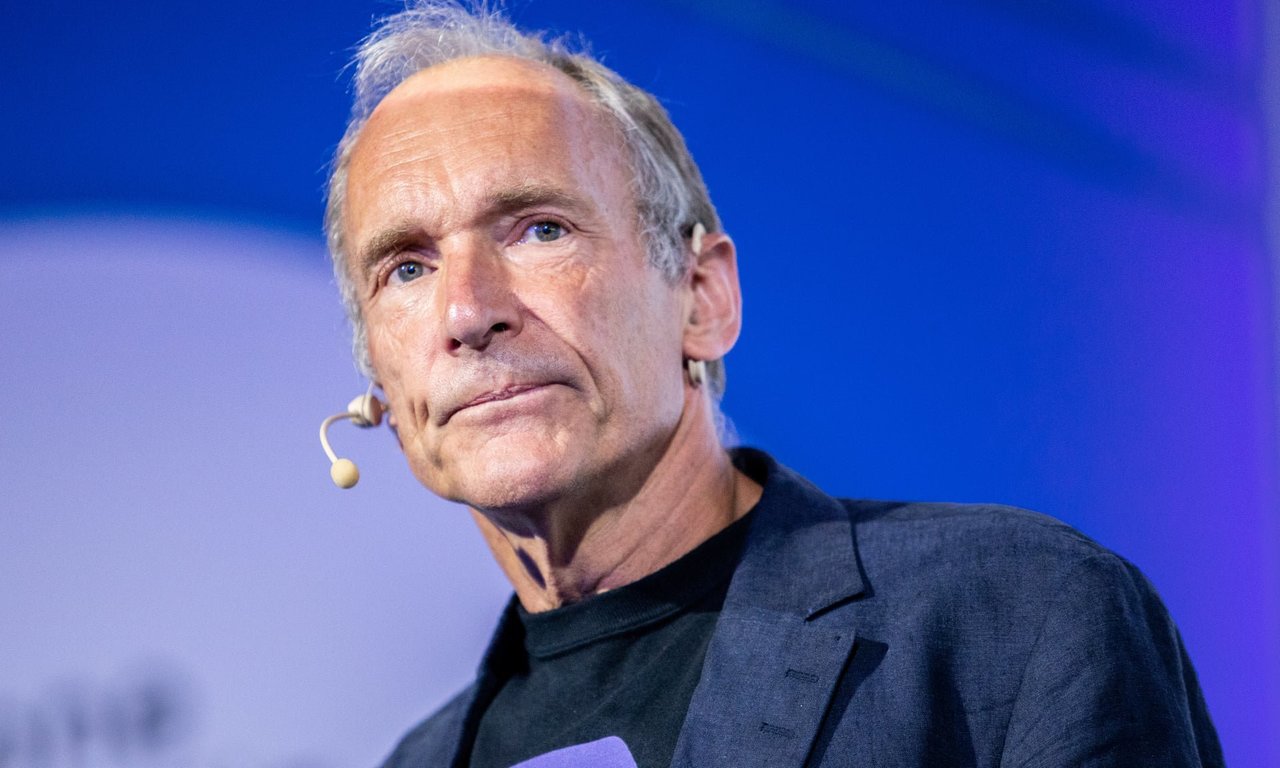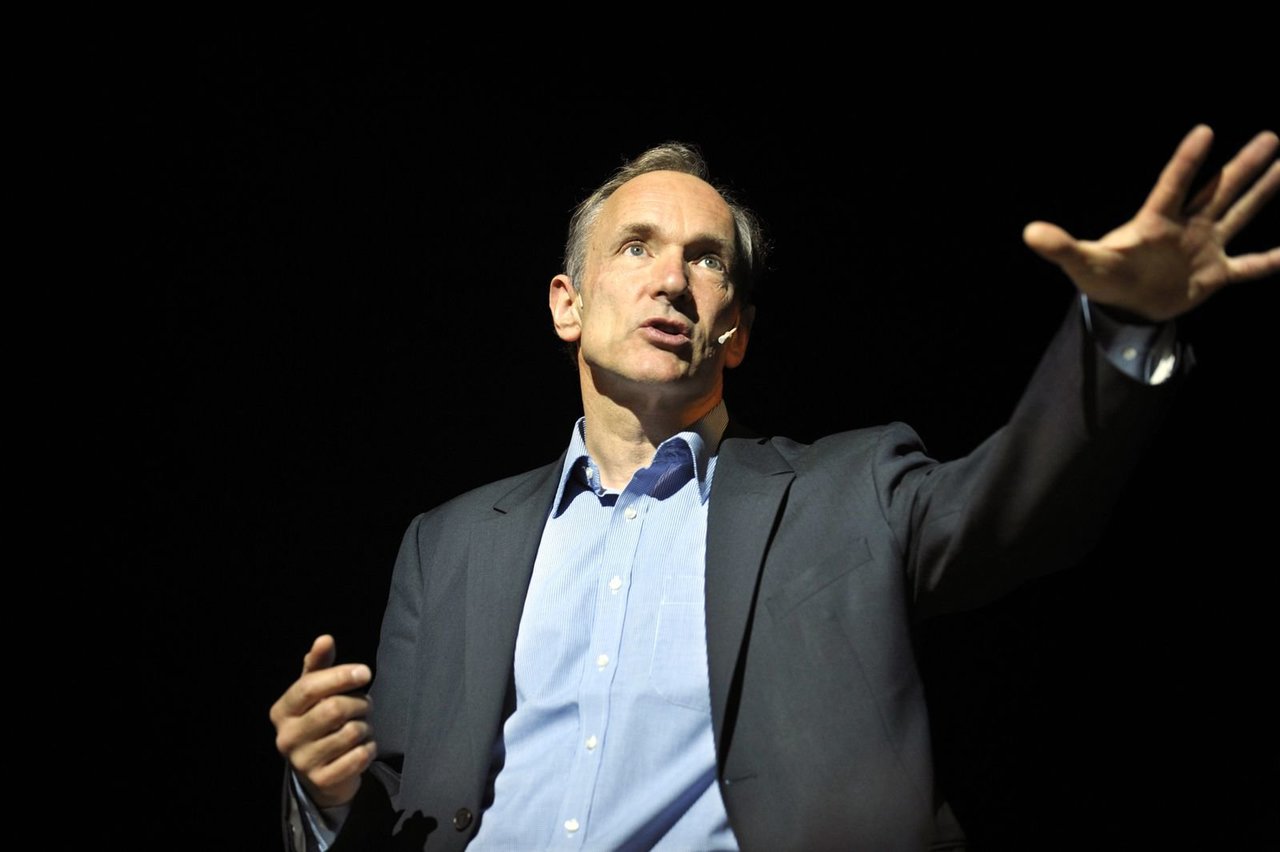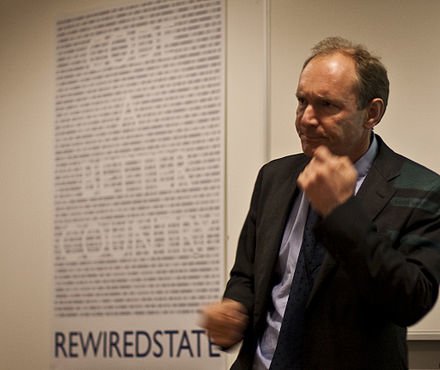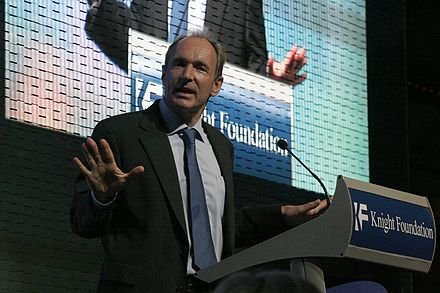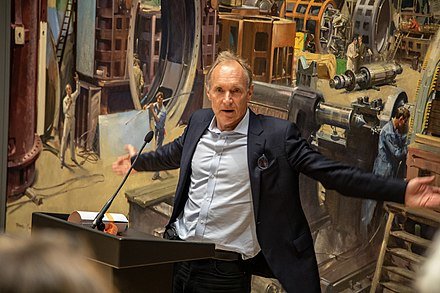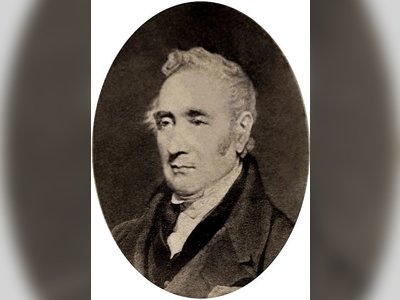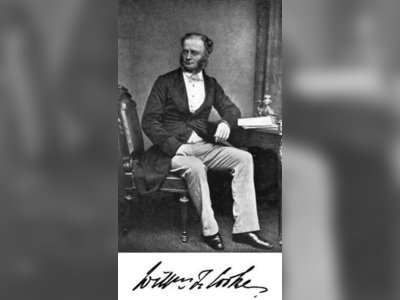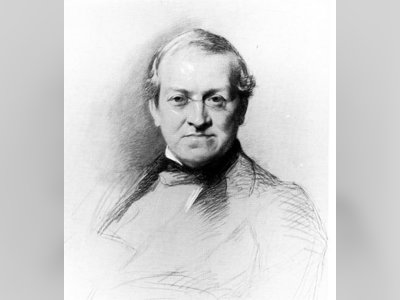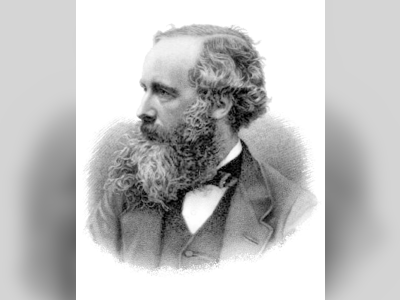British Heritage
Remember, Cherish, Learn.
beta
Tim Berners-Lee - The World Wide Web
Weaving the World Wide Web and Enriching British Heritage.
Pioneering a breakthrough in the digital landscape, Sir Timothy John Berners-Lee OM KBE FRS FREng FRSA FBCS, born on June 8, 1955, has made an enduring impact on the world's information infrastructure. An English computer scientist, Berners-Lee's brainchild, the World Wide Web, significantly amplified Britain's contribution to the global digital domain. The momentous influence of his innovative vision continues to inform the evolution of the internet, deeply shaping modern societal interaction and information exchange.
Born in London, Berners-Lee's early fascination with electronics was nurtured by his computer scientist parents, who worked on the first commercially built computer, the Ferranti Mark 1. His educational trajectory saw him graduate with a first-class Bachelor of Arts degree in Physics from The Queen's College, Oxford. He then went on to build a career at the intersection of computing, information systems, and networking.
During a stint at CERN, the European particle physics lab in Geneva, Berners-Lee proposed an information management system in March 1989. This led to the first successful communication between a Hypertext Transfer Protocol (HTTP) client and server via the Internet in November 1989, laying the foundation for the World Wide Web. A few months later, Berners-Lee's ground-breaking web browser and server set the stage for the web's rapid expansion.
Since the early days of the Web, Berners-Lee has held a pivotal role in directing its growth and promoting open standards. As the director of the World Wide Web Consortium (W3C), he oversees the web's continued development, driving its evolution through the creation of standards and recommendations.
His role as a key founding figure extends to several other influential digital institutions. He co-founded the World Wide Web Foundation with his then wife-to-be Rosemary Leith and established the Open Data Institute, both in efforts to harness the web as a tool for positive change. His commitment to advancing digital knowledge, inclusivity, and transparency has been influential in shaping the web's trajectory.
A recognised thought-leader in internet governance, Berners-Lee has been instrumental in shaping the web's regulatory environment. His work with the UK government in data accessibility led to the creation of data.gov.uk, a project committed to the open and free reuse of official government data. His advocacy for net neutrality continues to inform policy decisions, with his voice forming a critical part of the dialogue around Internet freedom and rights.
In terms of global impact, the World Wide Web has drastically reshaped modern life. Berners-Lee's innovation has transformed how we work, connect, learn, and participate in society. As stated by a panel of eminent scientists, academics, writers, and world leaders, the World Wide Web is "The fastest-growing communications medium of all time, [which] has changed the shape of modern life forever."
Berners-Lee's pioneering contributions have not gone unnoticed. In 2004, he was knighted by Queen Elizabeth II for his pioneering work, and in 2007, he was appointed to the Order of Merit, an honour restricted to only 24 living members.
Among numerous accolades, he was named by Time magazine in their list of the 100 Most Important People of the 20th century. He received the 2016 Turing Award, often referred to as the "Nobel Prize of Computing," for his transformative invention of the World Wide Web, the first web browser, and the fundamental protocols and algorithms enabling the web to scale.
Tim Berners-Lee's influence reverberates through the digital sphere. His commitment to an open, accessible, and free web has profoundly impacted society, reshaping how we interact, conduct business, and access information.
Through his efforts, Britain's digital landscape has become deeply intertwined with the history of the World Wide Web, a legacy that continues to define the country's tech sector. As a nation, Britain has not only produced one of the most significant inventors in the field of information technology, but also nurtured the development of a technology that has revolutionised human existence.
In conclusion, Berners-Lee's invention of the World Wide Web, his steadfast advocacy for internet neutrality and openness, and his unrelenting commitment to the web's further development, make him a towering figure in the digital realm. His contributions serve as a testament to British innovation, forever stamping the country's influence on the global digital landscape.
A Notable Path to Pioneering the Web
Born in London, Berners-Lee's early fascination with electronics was nurtured by his computer scientist parents, who worked on the first commercially built computer, the Ferranti Mark 1. His educational trajectory saw him graduate with a first-class Bachelor of Arts degree in Physics from The Queen's College, Oxford. He then went on to build a career at the intersection of computing, information systems, and networking.
During a stint at CERN, the European particle physics lab in Geneva, Berners-Lee proposed an information management system in March 1989. This led to the first successful communication between a Hypertext Transfer Protocol (HTTP) client and server via the Internet in November 1989, laying the foundation for the World Wide Web. A few months later, Berners-Lee's ground-breaking web browser and server set the stage for the web's rapid expansion.
Championing the Web's Development
Since the early days of the Web, Berners-Lee has held a pivotal role in directing its growth and promoting open standards. As the director of the World Wide Web Consortium (W3C), he oversees the web's continued development, driving its evolution through the creation of standards and recommendations.
His role as a key founding figure extends to several other influential digital institutions. He co-founded the World Wide Web Foundation with his then wife-to-be Rosemary Leith and established the Open Data Institute, both in efforts to harness the web as a tool for positive change. His commitment to advancing digital knowledge, inclusivity, and transparency has been influential in shaping the web's trajectory.
The Impact on British and Global Digital Landscape
A recognised thought-leader in internet governance, Berners-Lee has been instrumental in shaping the web's regulatory environment. His work with the UK government in data accessibility led to the creation of data.gov.uk, a project committed to the open and free reuse of official government data. His advocacy for net neutrality continues to inform policy decisions, with his voice forming a critical part of the dialogue around Internet freedom and rights.
In terms of global impact, the World Wide Web has drastically reshaped modern life. Berners-Lee's innovation has transformed how we work, connect, learn, and participate in society. As stated by a panel of eminent scientists, academics, writers, and world leaders, the World Wide Web is "The fastest-growing communications medium of all time, [which] has changed the shape of modern life forever."
Honours and Recognitions
Berners-Lee's pioneering contributions have not gone unnoticed. In 2004, he was knighted by Queen Elizabeth II for his pioneering work, and in 2007, he was appointed to the Order of Merit, an honour restricted to only 24 living members.
Among numerous accolades, he was named by Time magazine in their list of the 100 Most Important People of the 20th century. He received the 2016 Turing Award, often referred to as the "Nobel Prize of Computing," for his transformative invention of the World Wide Web, the first web browser, and the fundamental protocols and algorithms enabling the web to scale.
Legacy and Contribution to the Digital World
Tim Berners-Lee's influence reverberates through the digital sphere. His commitment to an open, accessible, and free web has profoundly impacted society, reshaping how we interact, conduct business, and access information.
Through his efforts, Britain's digital landscape has become deeply intertwined with the history of the World Wide Web, a legacy that continues to define the country's tech sector. As a nation, Britain has not only produced one of the most significant inventors in the field of information technology, but also nurtured the development of a technology that has revolutionised human existence.
In conclusion, Berners-Lee's invention of the World Wide Web, his steadfast advocacy for internet neutrality and openness, and his unrelenting commitment to the web's further development, make him a towering figure in the digital realm. His contributions serve as a testament to British innovation, forever stamping the country's influence on the global digital landscape.
- Tim Berners-Leeen.wikipedia.org
